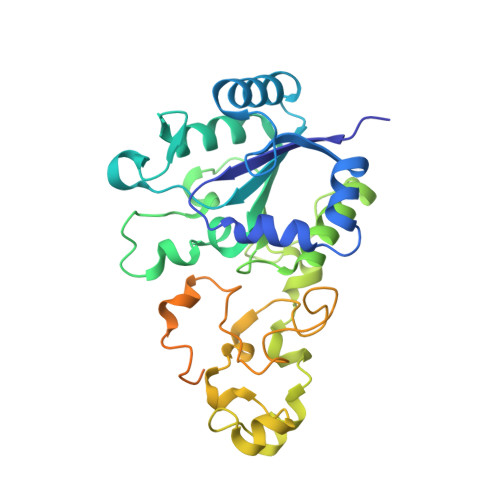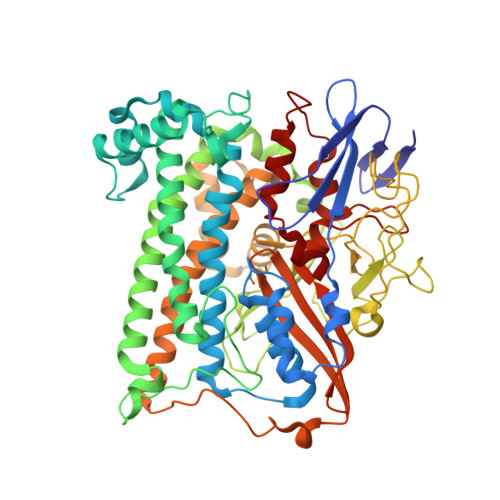Mechanistic Exploitation of a Self-Repairing, Blocked Proton Transfer Pathway in an O2-Tolerant [NiFe]-Hydrogenase.
Evans, R.M., Ash, P.A., Beaton, S.E., Brooke, E.J., Vincent, K.A., Carr, S.B., Armstrong, F.A.(2018) J Am Chem Soc 140: 10208-10220
- PubMed: 30070475
- DOI: https://doi.org/10.1021/jacs.8b04798
- Primary Citation of Related Structures:
5LRY, 6FPI, 6FPO, 6FPW, 6G7R, 6GAL, 6GAM, 6GAN - PubMed Abstract:
Catalytic long-range proton transfer in [NiFe]-hydrogenases has long been associated with a highly conserved glutamate (E) situated within 4 Å of the active site. Substituting for glutamine (Q) in the O 2 -tolerant [NiFe]-hydrogenase-1 from Escherichia coli produces a variant (E28Q) with unique properties that have been investigated using protein film electrochemistry, protein film infrared electrochemistry, and X-ray crystallography. At pH 7 and moderate potential, E28Q displays approximately 1% of the activity of the native enzyme, high enough to allow detailed infrared measurements under steady-state conditions. Atomic-level crystal structures reveal partial displacement of the amide side chain by a hydroxide ion, the occupancy of which increases with pH or under oxidizing conditions supporting formation of the superoxidized state of the unusual proximal [4Fe-3S] cluster located nearby. Under these special conditions, the essential exit pathway for at least one of the H + ions produced by H 2 oxidation, and assumed to be blocked in the E28Q variant, is partially repaired. During steady-state H 2 oxidation at neutral pH (i.e., when the barrier to H + exit via Q28 is almost totally closed), the catalytic cycle is dominated by the reduced states "Ni a -R" and "Ni a -C", even under highly oxidizing conditions. Hence, E28 is not involved in the initial activation/deprotonation of H 2 , but facilitates H + exit later in the catalytic cycle to regenerate the initial oxidized active state, assumed to be Ni a -SI. Accordingly, the oxidized inactive resting state, "Ni-B", is not produced by E28Q in the presence of H 2 at high potential because Ni a -SI (the precursor for Ni-B) cannot accumulate. The results have important implications for understanding the catalytic mechanism of [NiFe]-hydrogenases and the control of long-range proton-coupled electron transfer in hydrogenases and other enzymes.
- Department of Chemistry , University of Oxford , Oxford OX1 3QR , United Kingdom.
Organizational Affiliation:




























